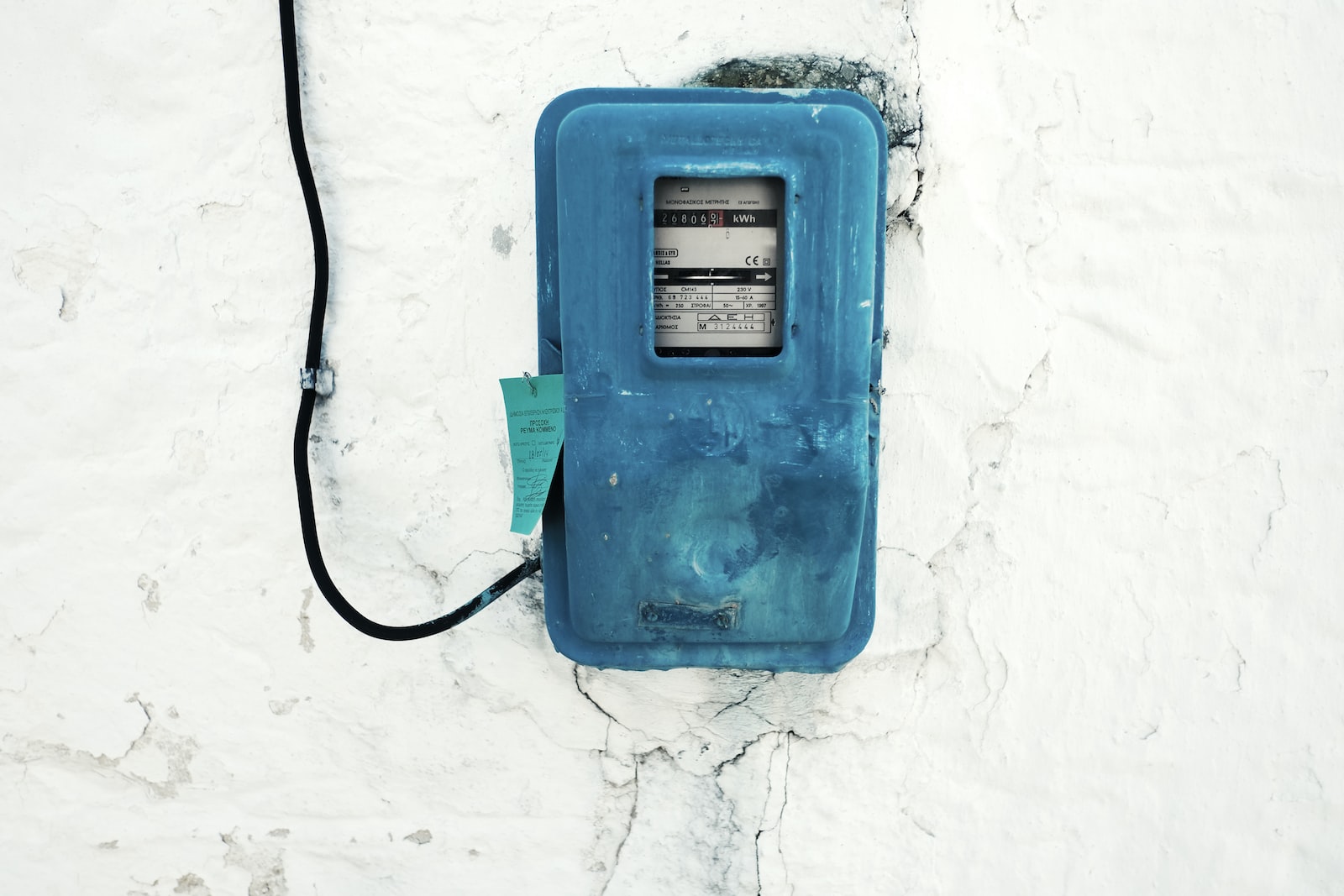Living on a low income can present many challenges when it comes to saving money. While it may seem like there is never enough money to go around, there are ways to stretch your budget and make the most of what you have. By being mindful of your spending habits and looking for ways to cut costs, you can improve your financial situation and set yourself up for a brighter future. Some strategies for living on a low income and saving money include creating a budget, finding ways to increase your income, and cutting costs wherever possible.
Whether it’s through finding deals and discounts, negotiating bills, or looking for free or low-cost activities in your community, there are many ways to save money and make the most of your income. By taking the time to research and implement these strategies, you can improve your financial situation and build a more secure financial future for yourself and your family.
How To Survive On A Low Income: 29 Saving Tips
1. Budget Your Money
Creating a budget is essential for managing your finances and staying on top of your spending. It allows you to see where your money is going, and identify areas where you can cut back. The first step in creating a budget is to track your income and expenses for a month. You can do this by using a budgeting app, or by keeping a simple spreadsheet. Once you have a clear picture of your income and expenses, you can start setting financial goals and allocating money towards them.
2. Cut Your Bills
One of the easiest ways to save money is by cutting your bills. You can do this by negotiating with service providers, switching to a cheaper provider, or cutting out subscriptions or memberships that you no longer need. For example, if you find that you’re spending too much on your cell phone bill, consider switching to a prepaid or no-contract plan. Or if you’re paying for a gym membership that you never use, cancel it and start exercising at home instead.
3. Thrift Shop
Thrift shopping is a great way to save money on clothing and household items. It’s also an environmentally friendly way to consume. Instead of buying new items, you can find gently used items at a fraction of the cost. Many thrift stores also offer a wide selection of vintage and unique items that you can’t find in regular stores. When you’re thrift shopping, make sure to take the time to look through the racks and dig for hidden gems.
4. Shop Online
Shopping online can help you save money in a number of ways. You can compare prices between different retailers, find discounts and coupons, and have a wider selection of products. Online shopping also saves you time and energy. You can search and buy products from your couch, and the products will be delivered to your door. When shopping online, make sure to compare prices across multiple websites and look for free shipping or returns.
5. Grow Your Own Food
Growing your own fruits, vegetables, and herbs can help you save money on groceries. It also allows you to know what you’re eating, and if it’s organic or not. Start small and see what grows best in your climate. Herbs like basil and mint are easy to grow indoors and can be used in a variety of dishes. Vegetables like tomatoes, peppers, and cucumbers can be grown in pots or in a small garden. With a little bit of care and attention, you can have fresh produce all season long. Not only will this save you money on groceries, but it can also be a rewarding hobby. Plus, gardening is a great way to get outside and enjoy some fresh air and exercise.
6. Meal Plan
Meal planning is a great way to save money on food and reduce food waste. It involves planning out your meals for the week in advance, and making a grocery list based on the ingredients you’ll need. By planning your meals ahead of time, you can take advantage of sales and buy ingredients in bulk, which can save you money. Additionally, meal planning can help you avoid last-minute takeout or delivery orders, which can add up over time. Before going to grocery store, make sure to take a look at your pantry and fridge, and plan your meals accordingly.
7. Take A List To Grocery Store
Creating a grocery list and sticking to it can help you avoid impulse purchases and overspending. Before heading to the store, make a list of the items you need and stick to it. This will help you stay focused on your shopping and prevent you from buying items that you don’t need. Additionally, you can make sure to take advantage of sales and discounts by checking store flyers and online before you go.
8. Take Advantage of Groupon
Groupon is a great resource for saving money on a wide range of products and services. It offers discounts on everything from restaurants and retail stores to travel and entertainment. Before making a purchase, check Groupon for deals and discounts. You may be surprised at how much money you can save by taking advantage of the deals and offers available.
9. Set Some Goals
Setting financial goals is a great way to stay motivated to save money. Whether your goal is to save for a down payment on a house, pay off debt, or save for retirement, having a specific goal in mind can help you stay focused on your financial priorities. When setting a goal, make sure it is SMART – Specific, Measurable, Achievable, Relevant and Time-bound. It will help you track your progress and stay on track.
10. Kick Some Bad Habits
Breaking bad habits such as smoking, excessive drinking, or gambling can help free up money for savings. These habits not only harm your health but also drain your finances. Quitting smoking can save you hundreds of dollars a year, and cutting back on alcohol and gambling can also help you save money. Additionally, by breaking these bad habits, you can improve your overall financial well-being and reduce stress. Start by setting a budget for these expenses, and work on gradually reducing them over time. Consider seeking support from friends and family, or professional help to kick these bad habits.
11. Stay Home More
One of the easiest ways to save money is to stay home more. By reducing outings and entertainment expenses, you can save a significant amount of money. Instead of going out to eat or to the movies, consider having a home-cooked meal or watching a movie at home. Instead of going to the gym, consider working out at home. This will help you save money on transportation and other expenses, and it can be a great way to spend quality time with family and friends.
12. Say No Sometimes
Saying no to certain expenses can also be an effective way to save money. This might mean turning down an expensive vacation, declining an invitation to a fancy dinner, or declining a shopping invitation. Saying no to these expenses can help you stay focused on your financial goals, and it can be a great way to reduce the temptation to overspend.
13. Exercise at Home
Exercising at home is a great way to save money on gym memberships and other fitness expenses. There are many different exercises you can do at home, such as bodyweight exercises, yoga, or cardio. Additionally, there are many free exercise videos and tutorials online that you can use to stay in shape.
14. Use Digit to Save Money
Use the app digit to save money. This app connects to your bank account and automatically saves small amounts of money for you, based on your spending habits. This can be a great way to save money without even thinking about it.
15. Become a Minimalist
Becoming a minimalist can help you save money by reducing the number of items you own and the amount of money you spend on new things. Additionally, by living with less, you can reduce your stress, find more time for the things you love, and be content with what you have.
16. Cook At Home
Cooking at home is a great way to save money on meals and have more control over the ingredients used in your food. By preparing your own meals, you can save money on takeout and delivery, and you can control the ingredients and portion sizes. Additionally, cooking at home can be a fun and rewarding experience. Start by planning your meals in advance, creating a grocery list, and sticking to it. Experiment with different recipes and ingredients to find meals that you enjoy and can prepare easily.
17. Have an Emergency Fund Ready

Having an emergency fund is an essential step in managing your finances. An emergency fund can help you handle unexpected expenses such as medical bills, car repairs, or job loss. It’s important to have at least 3-6 months’ worth of living expenses saved in an emergency fund. To start building your emergency fund, make a plan to save a small amount of money each month, and consider setting up automatic transfers from your checking account to your savings account.
18. Save on Transportation Costs
Transportation is one of the biggest expenses in many people’s budgets. To save money on transportation costs, consider using public transportation, biking, or walking instead of driving. Carpooling is also a great option if you have to drive. If you’re in the market for a new car, consider buying a used car instead of a new one. This can save you thousands of dollars in the long run.
19. Negotiate Rent Or Mortgage
Negotiating your rent or mortgage payments can be a great way to save money each month. Before you begin the negotiation process, research the market and find out what similar properties are renting or selling for in your area. This will give you a better understanding of what a fair price would be. When you speak with your landlord or lender, be prepared to explain why you believe you deserve a lower rate and have a specific number in mind that you would like to negotiate to. Be prepared to compromise, and try to come to an agreement that works for both parties. Additionally, consider looking into government programs that can help with housing costs if you are having difficulty making your payments.
20. Cut Cable and Subscriptions
Cable and subscription services can be a major expense, especially if you’re not using them to their full potential. To save money, consider cutting cable and subscription services that you don’t use or don’t need. Instead of cable, consider streaming services such as Netflix, Hulu, or Amazon Prime, which often offer a lower monthly fee. Also, look into alternative options for subscriptions such as renting items or borrowing from a library. By cutting unnecessary expenses, you can free up more money for your savings.
21. Use Coupons and Discount Codes
Using coupons and discount codes is a great way to save money on your shopping. You can find coupons and discount codes in a variety of places, such as in the Sunday newspaper, in a store’s circular or advertisement, or online. To find online coupons and discount codes, try searching for the store’s name along with the words “coupon” or “discount code” in a search engine. Some websites, such as RetailMeNot.com, specialize in providing coupons and discount codes for a wide range of retailers. When using coupons and discount codes, be sure to read the fine print to make sure you understand any restrictions or exclusions that may apply.
22. Avoid Debt
Avoiding debt is essential to maintaining your financial well-being. When you’re in debt, it can be difficult to save money and plan for the future. High-interest credit card debt can quickly spiral out of control, making it difficult to pay off. If you find yourself in debt, make a plan to pay it off as soon as possible. One way to do this is to make a budget and stick to it, so you can see where your money is going and where you can cut back.
23. Save on Childcare
Saving money on childcare can be challenging, but there are a few options to consider. One option is to find a low-cost daycare or preschool program. You can also consider sharing childcare with friends or family, or working from home if possible. For stay-at-home parents, you can look for free or low-cost activities in your community that will keep your child engaged and stimulated.
24. Save on Healthcare
Healthcare can be a significant expense for many people, but there are ways to reduce the costs. One way to save money on healthcare is by finding a low-cost health insurance plan. This can be done by comparing plans from different providers, looking for plans with high deductibles and low monthly premium, or opting for a catastrophic plan that only covers major medical expenses. Another way to save money on healthcare is by negotiating medical bills. This can be done by asking for a cash discount, or by working with the provider to set up a payment plan that fits your budget. Lastly, you can find free or low-cost clinics in your community that offer basic medical services at a reduced cost.
25. Save on Entertainment
Entertainment can also be a significant expense, but there are ways to save money while still having fun. One way to save money on entertainment is by finding free or low-cost activities in your community. This can include free concerts or events, visiting local parks, or taking advantage of free trials at gyms or other recreational facilities. Another way to save money on entertainment is by having a movie night at home instead of going to the theater. You can rent or stream movies online, or borrow movies from your local library for free.
26. Save on Travel
Traveling can be an expensive endeavor, but it doesn’t have to break the bank. There are several ways to save money on travel and still have an enjoyable and memorable experience. One of the most effective ways to save money on travel is by finding the best deals on flights and hotels. This can be done by using travel comparison websites, signing up for airline and hotel loyalty programs, and booking your trip well in advance. Additionally, traveling during off-peak seasons can also help you save money on your trip. This means avoiding peak tourist season and instead traveling during the shoulder season when prices are typically lower. Another way to save money on travel is by taking a road trip instead of flying. Road trips can be a great way to see the country and save money on transportation costs. You can also save money on accommodation by camping or staying in budget-friendly hotels or motels. By using these tips, you can save money on travel and still have an amazing vacation.
27. Save on Insurance
Saving money on insurance is crucial in order to maintain a healthy financial situation. One of the best ways to save on insurance is by shopping around for the best rates. This can be done by getting quotes from multiple insurance companies and comparing the coverage and prices. Another way to save on insurance is by raising your deductibles. A higher deductible means a lower premium, but it also means you’ll have to pay more out of pocket if you file a claim. Lastly, bundling your policies can also help you save on insurance. By combining your home, auto, and other types of insurance under one provider, you can often receive a discount on your overall premium. It’s important to review your insurance policies regularly and make sure you’re getting the best deal possible. By following these tips, you can save on insurance and keep more money in your pocket.
28. Save on Utilities
Saving money on utilities and education can be a game changer for your budget. When it comes to utilities, there are several ways to reduce your costs. For example, using energy-efficient appliances, sealing air leaks, and installing a programmable thermostat can all help lower your utility bills. Additionally, shopping around for the best rates on your utility service providers can also save you money. Another great way to save on utilities is to look into government-funded programs that help low-income households pay for their utilities.
29. Save on Education
When it comes to education, there are also many ways to save money. Attending a community college before transferring to a four-year university can save you thousands of dollars in tuition costs. Online classes and earning a degree through a low-cost or no-cost program are also great options for saving money on education. Furthermore, you can look into grants, scholarships, and student loan forgiveness programs to help pay for your education. The key is to do your research, compare options and be creative in finding ways to cut costs. Remember, education is an investment in your future, and taking the time to find a cost-effective solution is well worth it in the long run.
Living on a low income can be challenging, especially when it comes to saving money. However, as we’ve outlined in this article, there are many ways to cut costs and make your money stretch further. From using coupons and discount codes to finding low-cost healthcare options, there are a variety of strategies you can implement to improve your financial situation. Additionally, it’s important to avoid debt and find ways to save on childcare, entertainment, travel, insurance, and utilities. Furthermore, there are options for saving money on education.
By starting to implement these saving tips, you can take control of your finances and improve your overall financial situation. Whether you are just starting to budget or looking for ways to save more, these tips can help you make the most of your money. Don’t wait any longer, start taking action today and you will be on your way to a more financially stable future.































Leave a Reply